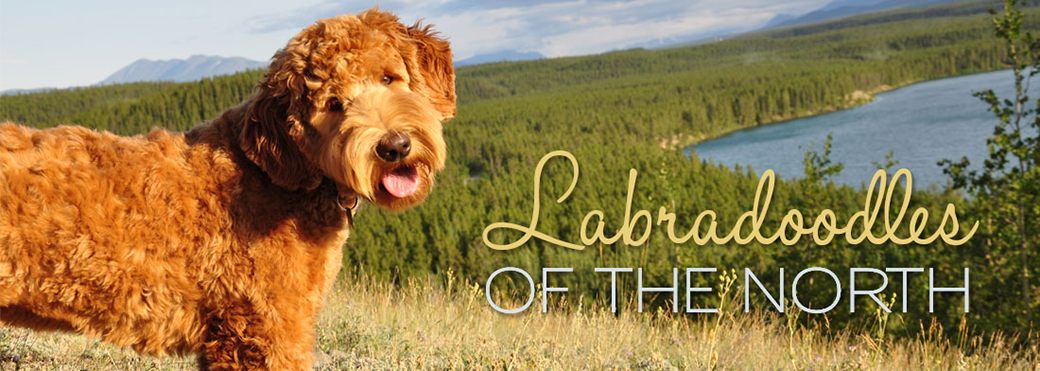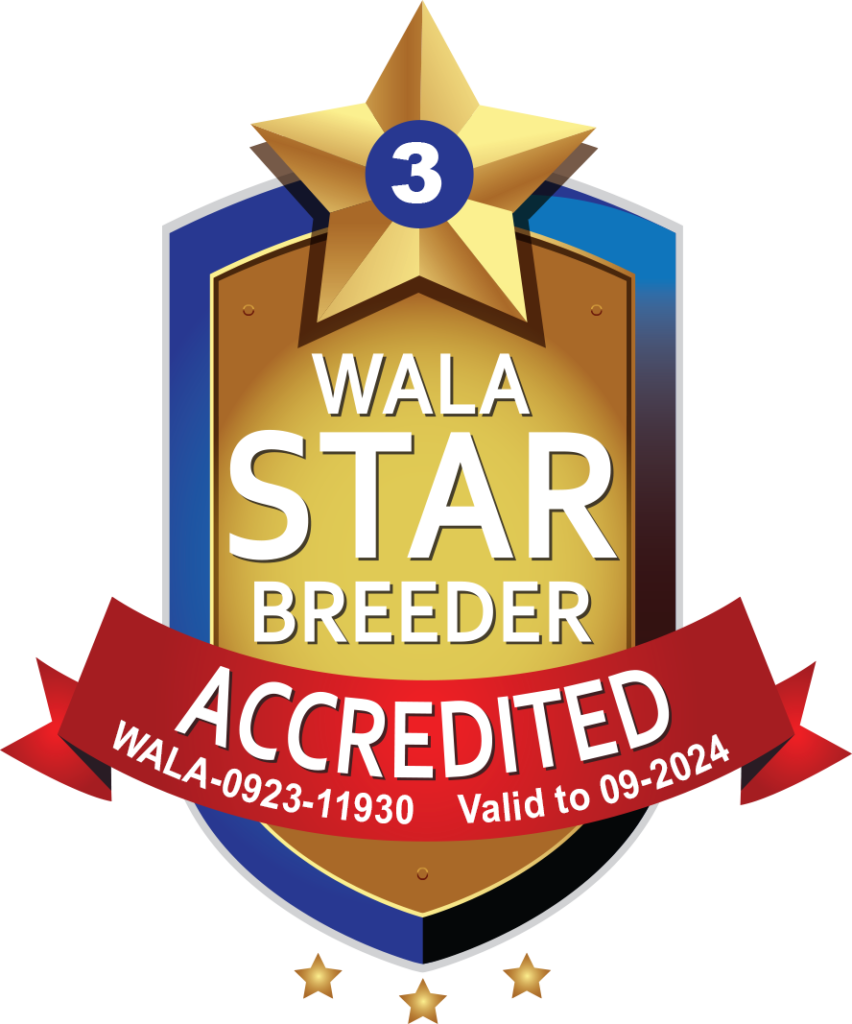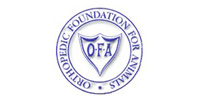Puppies will go through a number of different stages as they grow and develop. The more you know about the stages in a puppy’s life, the better equipped you’ll be to deal with the many situations that will arise. Some stages will be more challenging than others, but always remember to be consistent in your training and behavior correction. This commitment will lead to a happy and well adjusted member of your family.
Puppy Toddlers Period (3 – 8 Weeks)
“Mom teaches dog manners”
During the Toddler period, the labradoodle puppies emerge on their own from the litter. They venture into the surrounding environment. These lessons learned in the toddler stage are CRITICAL. Puppies removed too early tend to be nervous, tend to bark inappropriately, tend to bite simply because these lessons a mother and littermates usually provide were missed. Training problems and long-term behavior problems can often be attributed to a puppy removed from the litter much too soon.
Beginning at 3 weeks of age, what is going on:
The first lessons learned are dog specific behavioral patterns.
- They will learn various posture meanings and their effects to their mother and littermates.
- They will learn how to bite and what it is like to be bitten.
- They will learn what barking and other vocalizations mean and their uses.
- They will learn how to establish social relationships with other dogs.
- Beginning at 5 weeks of age, what is going on:
Vocalization and tempered activities (dog manners) usually are learned at approximately 5 weeks of age.
- They will learn how to be submissive to the leader of the pack.
- They will learn and refine additional postures, vocalizations and acceptable dog interaction behaviors.
What the Puppy’s mother will do:
The mother will growl, snarl and snap to communicate. With a few very clear signals and repetitions, the young puppy will learn quickly. At that point a mother’s glare or low growl is all that is needed to keep a young pup in line. Littermates also learn clear signals of communication to each other.
Socialization Period (7-12 Weeks) / First Fear Imprint Period (8-11 Weeks)
“Lasting impact, rapid learning”
Dogs that are denied socialization during this critical Socialization period often become unpredictable because they are fearful or aggressive. It is during this time, that your dog needs to have positive experiences. They need to be introduced to new things and begin the groundwork to a happy, well-adjusted dog.
Beginning at 7 weeks of age, what is going on:
- Short attention spans.
- Things learned are permanent and will be resistant to change.
- Puppy will be eager to learn.
- What he does and learns now, he will do as an adult.
- Puppy’s temperament and personality will become more apparent.
- Puppy will be transitioning his education from his mother to his human environment.
Beginning at 8 weeks-11 weeks of age, what is going on:
- Any traumatic, painful or frightening experiences can have a lasting impact.
What You Can Do:
- Gradually introduce your puppy to new things, environments and people.
- Make experiences positive (provide treats or toys)
- Don’t push your puppy into fearful situations – take things slowly and allow him to adjust and get used to the situation.
- Do not let others push your puppy or be forceful with them.
- Provide a secure comforting demeanor.
- Teach the puppy you are there to protect and lead.
Seniority Classification Period (12-16 Weeks)
“You’re not the boss of me!”
The puppy has been in the home now for a few weeks. He has been watching you and the family very closely. He is picking up on human behaviors and reactions. He is learning the pecking order of the pack. As he observes and learns, he will then attempt to figure out where exactly he stands in the pack order, and to also see if moving up in the pack will work. After all, he knows who the “weak links” are and will start at the bottom and try to move right up the pack. How could such a cute little pup be such a pistol?
Beginning 12-16 weeks of age, what is going on:
- Puppy will begin to question authority.
- Puppy will attempt to move himself up in the pack order.
- Puppy will try to dominate.
- Puppy will grab leashes
- Puppy will try to determine what activities are going to be done and when.
- Puppy may growl.
- Puppy may put his mouth on you.
- Puppy can often become over excited.
What you can do:
- Learn how your actions and body language communicate to your dog.
- Suggested reading: The Dog Listener – Author Jan Fennell
- Do not play aggressive games during this phase. (Tug or wrestling)
- If puppy becomes over excited, growls or mouths you, you stop all activity.
- Be very aware of how the puppy interacts with children – do not leave children unattended with the puppy.
- Enroll in a puppy kindergarten class to redirect some of the energy.
- Evaluate the whole family’s methods of interactions and corrections and make sure that all are consistent and clear. (Unified front concept here)
Flight Instinct Period (4 – 8 Months)
“Fly like an Eagle, into the wind”
Your cute little puppy has been following you around for weeks now. He has been aware of where you are and would stay pretty close. During this period that same cute little puppy will decide that he is ready to go solo and take off running quicker than lightening. During this time, teaching the puppy that he must stay close by or come when called is critical. The failure to do this will result in a dog that will not be reliable to come or to stay close by as an adult and very well could lead the dog into a life or death situation.
What is going on:
- The puppy will become more independent.
- A puppy that previously would never go very far, will venture off.
- The puppy will ignore commands to stay close or come.
- How you handle refusal to come or stay will affect future reliability off leash.
- Puppy will be clever in attempts to run around loose.
What you can do:
- Leash on 100% of the time they are not in a confined area.
- Never allow dog loose in an unconfined area. (Yes this is a repetition of the first point, so it must be pretty important for us to say it twice.)
- Being off leash outside of a confined area is reserved for those who have been well trained.
- Enroll in training class that utilizes positive training techniques.
- Reinforce and continue to train your puppy “come”.
- Make coming a very positive experience.
- Oh… and never allow your puppy to be off leash in an unconfined area.
Adolescence Period (7 – 10 months)
“Welcome to the Teenage Years – Enjoy the Ride”
This is one of the most difficult times for pet owners. They are so surprised when their puppy turns into “devil dog” or “Cujo”. This often is a time when many families start to worry that maybe they made a bad decision in getting a dog. Remember: you get what you put into it. If you take the time right now to teach good habits, you will have the dog you always dreamed of for many years. This work will payoff.
What is going on:
- The puppy will become a free and independent thinker.
- The puppy will continue to review the pack order.
- The puppy will be very energetic.
- The puppy will be exuberant and enthusiastic.
- They turn into clowns with teeth.
- They will delight in learning new and fun things.
What you can do:
- Appreciate the humor of it all.
- Have you read the book The Dog Listener yet? It will help.
- Understand that despite the behaviors it is your time to continue to train and reinforce the things you do want him to do.
- Reaffirm the family pack order.
- Be realistic about expectations (still very much a puppy in a big boy body)
- Channel all that energy into positive learning experiences.
- Continue with training classes; explore options for additional training opportunities.
Second Fear Imprint Period (6 – 14 Months)
“Yikes! What’s up with that?”
You have a puppy that is full of beans, he runs around like a clown in search of his next show. But then, BAM, he refuses to walk down some stairs, he is shaking in the car, or he jumps at the sound of the neighbor’s music. Surprise! This is normal, but you must help your dog figure out how to deal with his fears or concerns. The skills of learning how to “shake it off and keep going” will be valuable to him for the rest of his life. It will also reduce the chances that the things he fears will be permanently imprinted for life.
What is going on:
- The puppy that was so confident will suddenly become reluctant to try new things.
- This period can be subtle.
- This period can come and go several times over this entire period.
- It may appear to be unprovoked or unrelated to any specific occurrence.
- Puppy can become frustrating to owners.
- You may notice this behavior more in males.
What you can do:
- Avoid extremes in your response (no anger or forcing or over-comforting)
- Be patient and understanding.
- Be aware of surrounding and potential triggers.
- Work on desensitizing him with gradual introductions with rewards.
- Avoid too much reassurance or coddling (which is a reward for this behavior)
- Don’t over-react or correct the fearfulness – just make light of it and encourage him to deal with his fear (work through the fear).
- Praise with grand rewards for his attempts.
- Your dog will take his clues from you, if you act frightened or concerned he will too.
Mature Adulthood Development Period (1 – 3 Years)
“I shall protect thy kingdom!”
So the puppy is no longer an itty-bitty baby, he is pretty much fully-grown in height. He will begin to fill out a bit and develop more muscle tone. But, mentally, the dog is still working out some last details of his life and what it means to him. He IS a member of a pack and now begins to find that his turf is worthy of monitoring and protecting. Sort of sounds nice to have your dog be protective, but don’t fall for it. You do not want you dog to take over these responsibilities because in no time you too will be under the rule of the King Dog. This can lead to aggressive behaviors, protective to the point of creating fear or actually harming someone or another animal as he protects. This is bad news, and often a reason a dog is taken out of the home or put down. So, don’t allow your dog to be the King of the Castle; assign him the role of court jester – he will be happier and so will your family.
What is going on:
- The dog may become more turf protective.
- Strangers may be greeted with barking.
- Barking at noises, birds, cars, butterflies, and pretty much everything he believes to be worthy of attention.
- Playing with other dogs may escalate to fighting.
- Same sex confrontations of other dogs can occur.
- Once again, checking the pack order to see if he can move up.
What you can do:
- Reinforce how to greet strangers into your home.
- Teach your dog to ignore dogs he cannot be nice to.
- Practice or reinforce dog manners with other well adjusted dogs
- Learn to read your dog and other dogs. (Circling, walking on toes, stiff tail wags, tense facial expressions – are the signs of aggressive behaviors)
- Rally your family to review that the pack order is clear and be very consistent with training and corrections.
- Reward him for good behaviors.
- Give that dog another job, therapy work, obedience classes, agility.
Information provided by International Doodle Owners Group – IDOG.Biz copyright 2006







